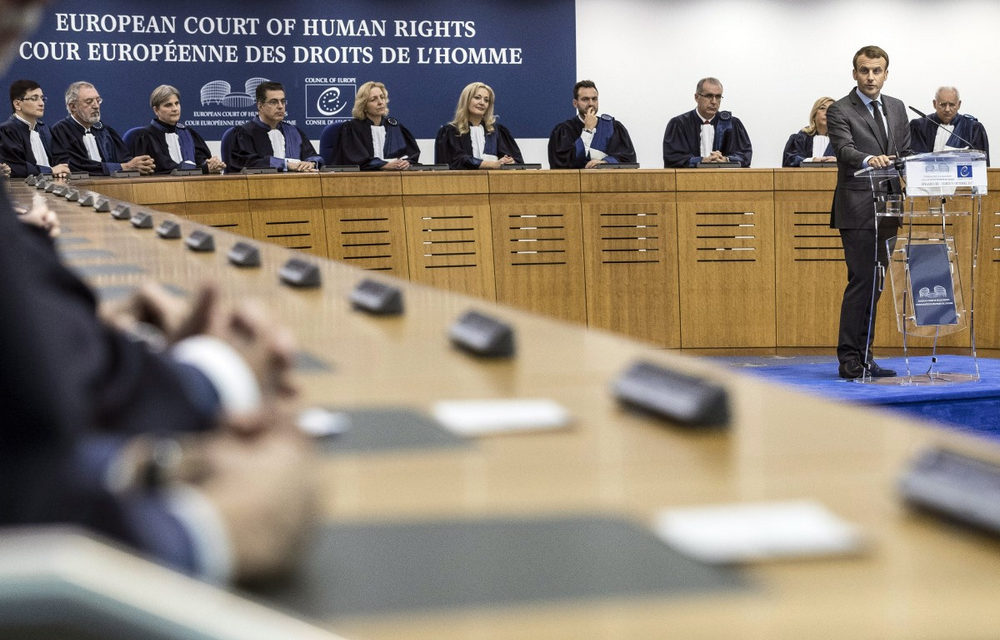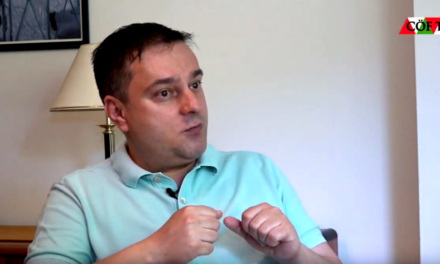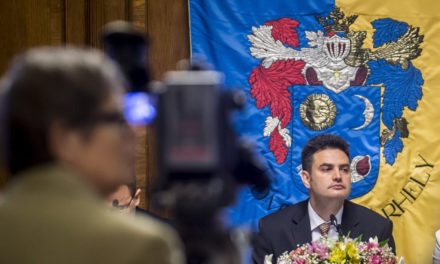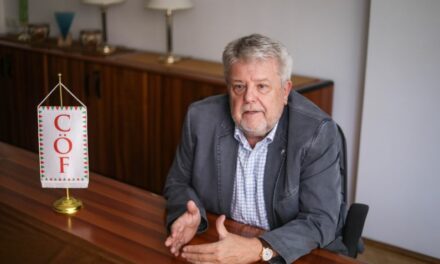About 20 percent of judges at the European Court of Human Rights are those who previously worked for György Soros' organizations. The question arises: how independent are judges and how much can judicial independence be damaged in such a situation? – French constitutional lawyer Grégor Puppinck was also asked about this in Kossuth Rádió's Vasárnapi Újság program.
Mr. Puppinck, this is not the first time you have written an article about the functioning of the European Court of Human Rights. They did a great job in exposing its illegalities. What happened now? What has changed?
We sent our report to the Court and sent it to the 47-person Council of Ambassadors. It was quiet for a long time, but now something happened. The European Court of Human Rights has discreetly reformulated the Code of Ethics of the Court, that is, the legal code of their internal operation. According to this, judges must be blameless, independent and impartial. This acknowledged the problem we raised. In other words, we were able to make sure that what we, that is, my organization, the European Center for Law and Justice (ECLJ), raised was a real problem, and the European Court recognized all of this and began to respond to our requests. There are still many issues left, and we are waiting attentively to get answers to them as well.
If I understand correctly, one of their problems was that some of the judges were not independent and were or were under the influence of people or organizations. After that, what else do they want to achieve?
We have a long list with many more questions. Here, for example, there is the presence of judges who previously worked at the Open Society Foundation within the ranks of the Court. With an opaque financial background that comes from György Soros or the Foundation. But I'm saying something else. The fact that we do not know which judge will handle the case before the hearings also raises a problem. Then the judges do not publish the declarations of interests, which is also very strange here in Strasbourg. This is usually published in every democratic country except here. I listed only a few points, but of course there are others. In addition to this, I would emphasize that the biggest problem is that 20 percent of the judges working here are in some way connected to the Open Society Foundation.
He says that they are asking the European Court of Justice for these things. According to them, there is a relationship between you. Do they exchange emails or otherwise?
There is no indirect contact, we can mostly contact them through the ambassadors assigned to the Council of Europe. No matter how many times we wrote to them, they never responded. Sometimes you manage to talk to a judge, but never to the organization. The press helps a lot, as they describe the problems raised and the ambassadors also understand the gravity of the issues. This is how we can keep our case on the table.
How many judges are currently working and are there any new judges who have been elected since you raised these issues?
Forty-seven judges are working, since according to the human rights convention, each member state of the Council of Europe - there are currently 47 - can send a judge. Of course, the mandate of these people expires after a while. An interesting thing happened last year. Among the three candidates, Belgium wanted to choose the person who previously worked for the Open Society Foundation. We wrote this at the time and warned everyone about the problem. In the end, this man was not elected. I don't remember a case where a person from the Open Society Foundation failed such a test. Now, not too long ago, something else happened. Albania had to send a new person, and two of their three candidates had previously worked for the aforementioned foundation. And this shows what capacity, what power this organization has, and what kind of lobbying it can do if they want to get places.
What is their purpose? Should these judges be replaced, or will they be satisfied if the next judges are not connected to any NGO?
What we want and what we know are two things. But we definitely want those judges who make serious mistakes to be sanctioned in some way. Here, for example, is the case of a Bulgarian judge who presided over a case in which the most important stakeholder was the organization in which he had previously played an important role. This is unacceptable. In such cases, a sanction should be applied. I don't know what kind of sanction, that should be decided by the Court, but it is even possible to call him back after such a case.
Do you think there is any other organization like the European Court of Human Rights in the world that is not independent and is influenced by people or organizations?
Naturally. All major institutions that were formed within the framework of human rights are like this. The private sector is behind them, but there are others. Everyone knows that Bill Gates' foundation is behind the WHO, that is, the World Health Organization. Then there is the UN. My workplace, the European Center for Law and Justice, published a very interesting study this year, at least as important as the previous one, according to which experts funded by the UN are linked to either the Open Society Foundation or the Ford Foundation. In this way, dozens of UN experts are financed in a completely non-transparent manner. Hundreds of thousands of dollars are spent on this. When the experts write their so-called own report, it is published like a UN report. This is scandalous. This also avoids the appearance of impartiality. I repeat: these studies are not carried out with their own money.
You can listen to the full conversation here.
Source: hirado.hu
Cover image: Illustration / Photo: French President Emmanuel Macron delivers a speech at the meeting of the European Court of Human Rights, ECHR, in the organization's building in Strasbourg on October 31, 2017. (MTI/EPA/AP pool/Jean-Francois Badias)













